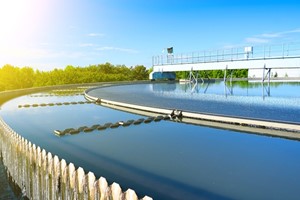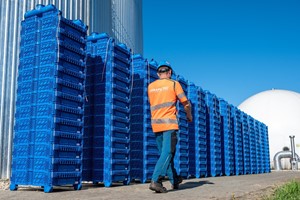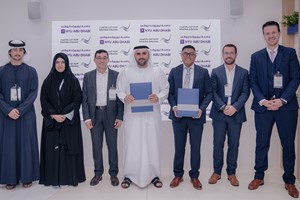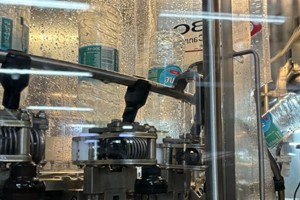In a groundbreaking move towards addressing critical challenges in water security, decarbonizing aviation, and advancing hydrogen technologies, Cranfield University has secured over £25 million in funding to establish two cutting-edge Centres for Doctoral Training (CDT). These centers, closely linked with industry partners, are poised to cultivate high-level skills and innovative technologies, underscoring the university's commitment to driving real-world impact and fostering collaboration between academia and industry.
Michelle Donelan, Secretary of State for Science, Innovation, and Technology, announced this significant investment, marking a watershed moment in the UK's efforts to bolster engineering and physical sciences doctoral skills. With more than £1 billion allocated, the initiative spans 65 new Centres for Doctoral Training, positioning the UK at the forefront of research and development in crucial sectors.
At the helm of Cranfield's endeavors is Professor Leon A. Terry, Pro-Vice-Chancellor for Research and Innovation, who lauds this investment as a testament to the university's dynamic research environment and longstanding partnerships with industry. He emphasizes the invaluable opportunity for doctoral students to collaborate with leading experts and gain hands-on experience, driving tangible outcomes in their respective fields.
The first of Cranfield's pioneering centers, the EPSRC Centre for Doctoral Training in Water Infrastructure and Resilience II (WIRe II), spearheaded by Professor Peter Jarvis, is set to receive £8.1 million in funding from EPSRC. In collaboration with Sheffield and Newcastle Universities, WIRe II will equip 60 students with the expertise to address pressing issues such as climate change's impact on water systems and advancing carbon-neutrality ambitions in the sector. With access to world-leading experimental facilities and partnerships with key stakeholders, WIRe II is poised to drive transformative research in safeguarding water quality and enhancing infrastructure resilience.
In parallel, the EPSRC Centre for Doctoral Training in Net Zero Aviation, led by Professor Panos Laskaridis, will receive over £7 million in funding to tackle the urgent need for decarbonization in the aviation industry. Collaborating with Cardiff and Strathclyde Universities, this center aims to train 64 students in developing disruptive solutions aligned with the UK's Jet Zero and ATI's Destination Zero strategies. Through a multidisciplinary approach encompassing sustainable aviation fuels, electrification, and innovative propulsion systems, the center seeks to establish the UK as a global hub for net-zero aviation technology and innovation.
Furthermore, Cranfield's involvement in the EPSRC Centre for Doctoral Training in Engineering Hydrogen Net Zero, led by Loughborough University, underscores its commitment to advancing hydrogen technologies. With a focus on addressing critical aspects of hydrogen production, scalability, and social acceptance, this collaborative effort aims to cultivate a pipeline of talented leaders poised to drive green economic growth in the UK. Professor Upul Wijayantha, Cranfield's academic lead for the initiative, emphasizes the importance of nurturing skilled professionals to catalyze innovation in the hydrogen energy sector.
Reflecting on the broader significance of these initiatives, Michelle Donelan highlights the imperative of investing in ambitious UK talent to spearhead groundbreaking discoveries and drive economic growth. By targeting critical technologies and fostering collaboration between academia, industry, and government, the UK is poised to maintain its status as a global leader in research and development.
Professor Charlotte Deane, Executive Chair of the Engineering and Physical Sciences Research Council, echoes this sentiment, emphasizing the pivotal role of the newly established Centres for Doctoral Training in preparing the next generation of researchers and industry experts. Spanning diverse sectors and disciplines, these centers epitomize the UK's wealth of research excellence and its potential to tackle complex challenges, benefiting society and the economy alike.
Cranfield University's endeavors in water security, net-zero aviation, and hydrogen technologies underscore its commitment to driving innovation and collaboration at the intersection of academia and industry. With substantial funding and strategic partnerships in place, these initiatives are poised to shape the future landscape of their respective fields, propelling the UK towards a more sustainable, resilient, and prosperous future.












